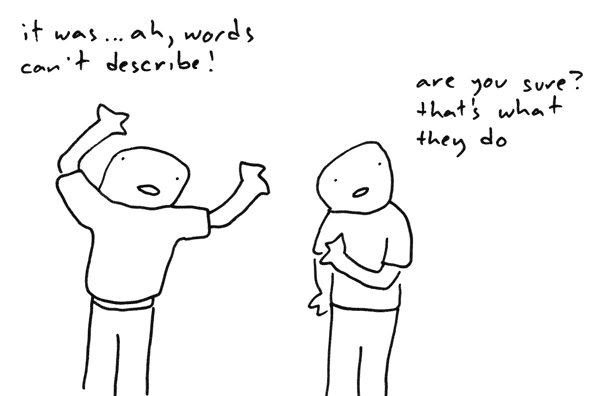Words. Communication.
What images do you think of when you read the above words?
Letters and paragraphs on a page, moving lips, open mouths, or a computer
screen? It probably depends on where and how you use language the most in your
day-to-day life. Generally, I think, it would be natural
to think of “Words” as on a page and “Communication” as between two or more
people in everyday life. Anyway, these two words are so interconnected to one
another that they are nearly interchangeable, but not quite so.
 |
| Image from barnraisersllc.net |
Words can be very powerful. Even the smallest of comments
could crush someone else entirely. Sometimes, we just don’t think about what we
say before we say it, and suffer consequences for our neglect, whether they be
great or small. Others don’t have much of a “filter” at all and everything they
think just comes tumbling right out their mouths, regardless of what may come
from their words. Sometimes I wonder how those people get by.
I recently found that I was offending people with my
honest-to-goodness words, which of course, I never intended. It turns out that
some people are deeply offended by the truth and do their best to outrun it.
But I was greatly offended because these people did not come to me with their
problem with me, but told everybody else, it seems, about it; I only found out
through the proverbial grapevine. “Through the grapevine” is not a good way to
find things out that involve you.
Through words, we communicate how we feel, how we think,
what we think, et cetera, each of us to a different degree of everything, of
course. There is no problem with my communication skills and there wasn’t when
I was offending others. Where the problem lies is with their communication
skills. Yes, they may have been uncomfortable with bringing their problem with
my truthiness to me, but that’s how things get easily solved. When things like
this happen – when people talk about their problems with others with everyone
but the people they have problems with – it creates a kind of drama. With me,
honesty really is the best policy and straightforwardness is appreciated and
respected. Drama is highly frowned upon.
 |
| Image from dianamarinova.com |
How does a lack of communication affect the already open
lines of communication? The lines become damaged or get tossed out completely.
I choose not to communicate with people who refuse to communicate back to me.
Sure, I may still talk to them, but it’s only on a must-need basis. How am I
supposed to know if the words I’m using are okay unless they come and talk to
me? I’m not a mind-reader. I am usually a pretty decent judge of character, but
I can’t read the minds of those who are incommunicable.
You, reader, are probably wondering why I’m even posting
something like this on my language blog. It’s partly because I haven’t posted
in a while, partly to relieve my stress of this situation and share my
thoughts, and basically to communicate how difficult communication can be when
others don’t communicate back. Language barriers are tough, but with gestures,
a few frustrations, and the dire will to communicate, language barriers can be
overcome. Lack of communication altogether makes things impossible.

.JPG)



